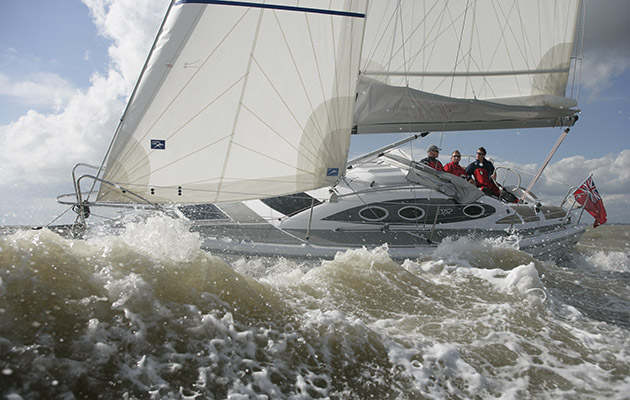Jonty Pearce reflects on Mel Bartlett's article on the Recreational Craft Directive in the November 2018 edition of Yachting Monthly which leads him to muse on boat design
I enjoyed Mel Bartlett’s How Europe has shaped boat design article (Yachting Monthly, November 2018) describing the Recreational Craft Directive (RCD).
I, however, made the mistake of reading it just before sleep time, and as is so often the case the words blurred into dream as I closed my eyes and drifted off.
In my reverie I seemed to reach for copies of the RCD and the British Standards Institute’s International Organisation for Standardisation (IOS) regulations.
I turned the pages, becoming reluctantly drawn into the ISO’s latest update to their document ‘ISO 11591: Small Craft – Field of Vision from helm position’.
What caught my attention – though that might be too strong a term – was the broadening of its remit to encompass sailing craft in addition to the existing directive over motor boats.
Although ‘engine driven tiller-steered craft’ capable of less than 10 knots were excluded, wheel-steered sailing craft, such as mine, were not, and thus would be included in its proposed regulations for newly built yachts.
Reading on, ‘the steering position should permit the operator to have a full field of vision during cruising and other manoeuvres’. Furthermore ‘the layout of the steering position should provide to the operator a proper look-out by sight appropriate in the prevailing conditions and circumstances’.
I pondered the modifications that yacht builders would need to incorporate into their designs in order to meet these new proposed standards.
In my dream, as I turned the pages and read on, my eyes followed the letters and words until the lines curved and started to blur, and my mind drifted until it seemed that I experienced a dream within a dream, and stood at the wheel of a strange yacht whose form was unreal and unlike anything I had encountered before.
The world seemed unusually bright and clear, and my view forward over the deck was free of obstruction.
Continues below…
I realised that components that would normally hamper my view were either altered or absent.
The mast, habitually a solid feature right before the helmsman’s eyes, was at my back, and the foresail that billowed before me was transparent – it seemed ethereal and magical, woven of a near invisible material that, whilst revealing its shape and set, gave no loss of clarity of the distant horizon.
Closer, where I would have expected a spray-hood, was a clear glass screen ready, as dusk fell, to transform into a widescreen monitor displaying nocturnal secrets revealed by the night vision camera mounted high on the mast.
Beside me, where previously the doghouse sides had restricted my view, were slots in the deck where it had retracted into the saloon, allowing a clear vista to either side.
Furthermore, the guard rails and stanchions had dropped out of line of sight to deck height, ready to spring up as soon as optical sensors detected human presence venturing forward out of the safety of the central cockpit.
I glanced up to see the curve of the mast rising behind me, only to notice a lightweight kevlar crow’s nest at the spar’s head ready for the nimblest crew-member to shin up the ratlines for a far-reaching view.
There were no fittings for the now banned spinnaker – those colourful ballooning sails have been deemed to constitute a visual hazard to sailing, and therefore prohibited by the thought police.
Below me lay a range of instruments – radar, AIS, course, speed, Port Control Ship Movements – all ready for the heads up display as soon as I donned the Smart Glasses that repeated their data before my eyes even as my head turned to scan the seas for hidden threats.
Beside me the autopilot control blinked rhythmically as it made automatic course adjustments to faithfully obey the COLREGS as its inputs fed in ship movements from all around us.
Sailing along our port side was a smaller boat, surprisingly with its helmsman right up at the prow behind a wheel mounted on the stem. All he needed was Kate Winslet, arms outstretched, to sit on his shoulders in tribute to the famous ‘Titanic’ pose, though on a rather smaller scale.
Towed behind him was a regulation Ifor Wallioms Tender-trailer loaded with illegal deck clutter – liferaft, inflatable dinghy, whisker pole, boathook, and the ship’s dog.
My vision faded, swirled, and broke up as I woke to the reality of my still bright bedroom reading light, unsure if what I had seen in my mind’s eye was real or dreamed.
Although I wondered if we lived in a world driven mad by regulation, I reached for my pencil intent on recording the myriad innovative ideas that could, via Patent registration, make my fortune as designers strove to create the first compliant craft.
My scribbling completed, I rolled over, and finally drifted off secure in the knowledge that the RCD had achieved its remit in at least one realm – proper sleep had come at last.
The room echoed to my peaceful snores.




